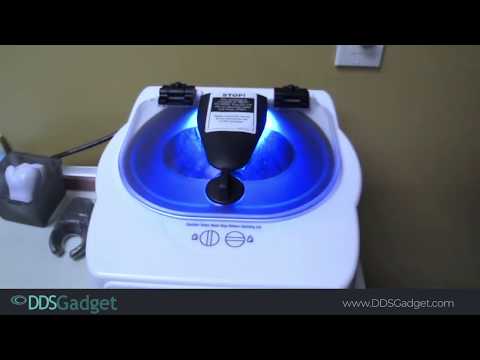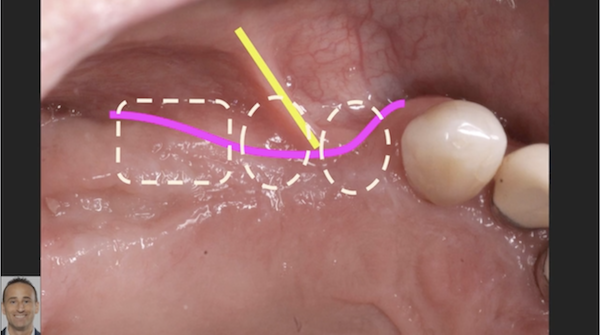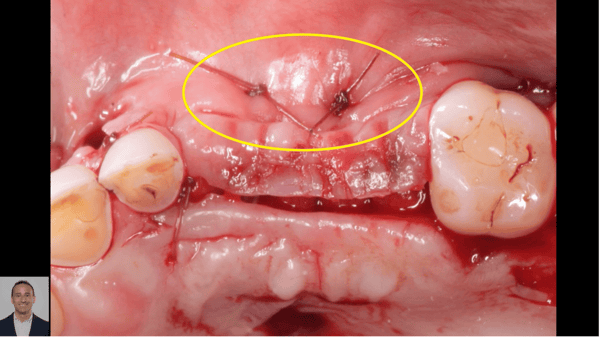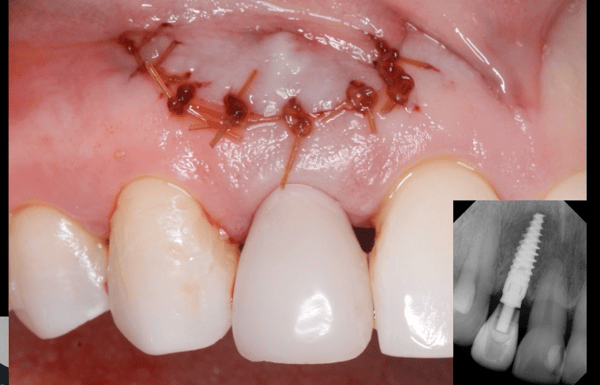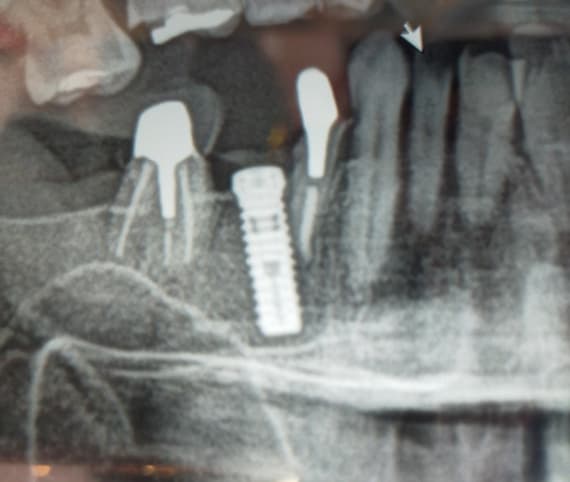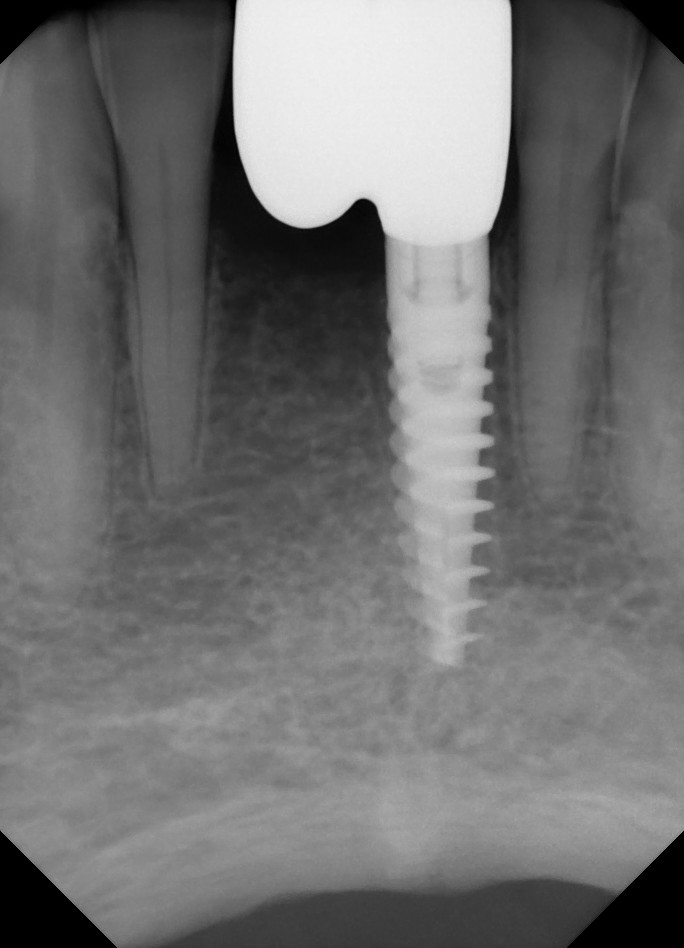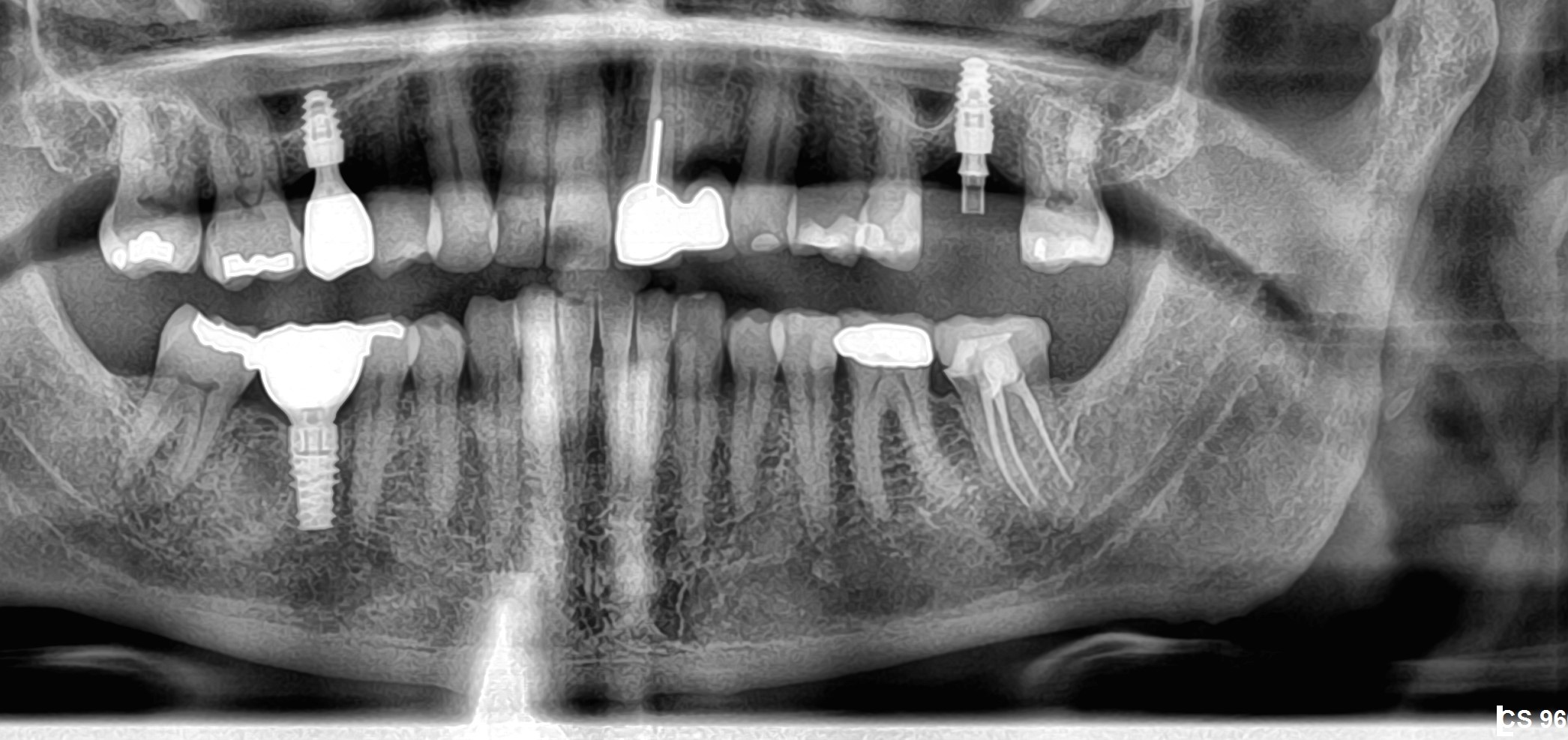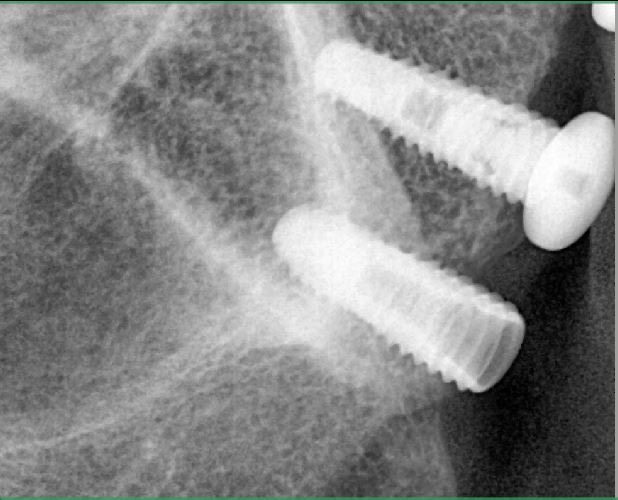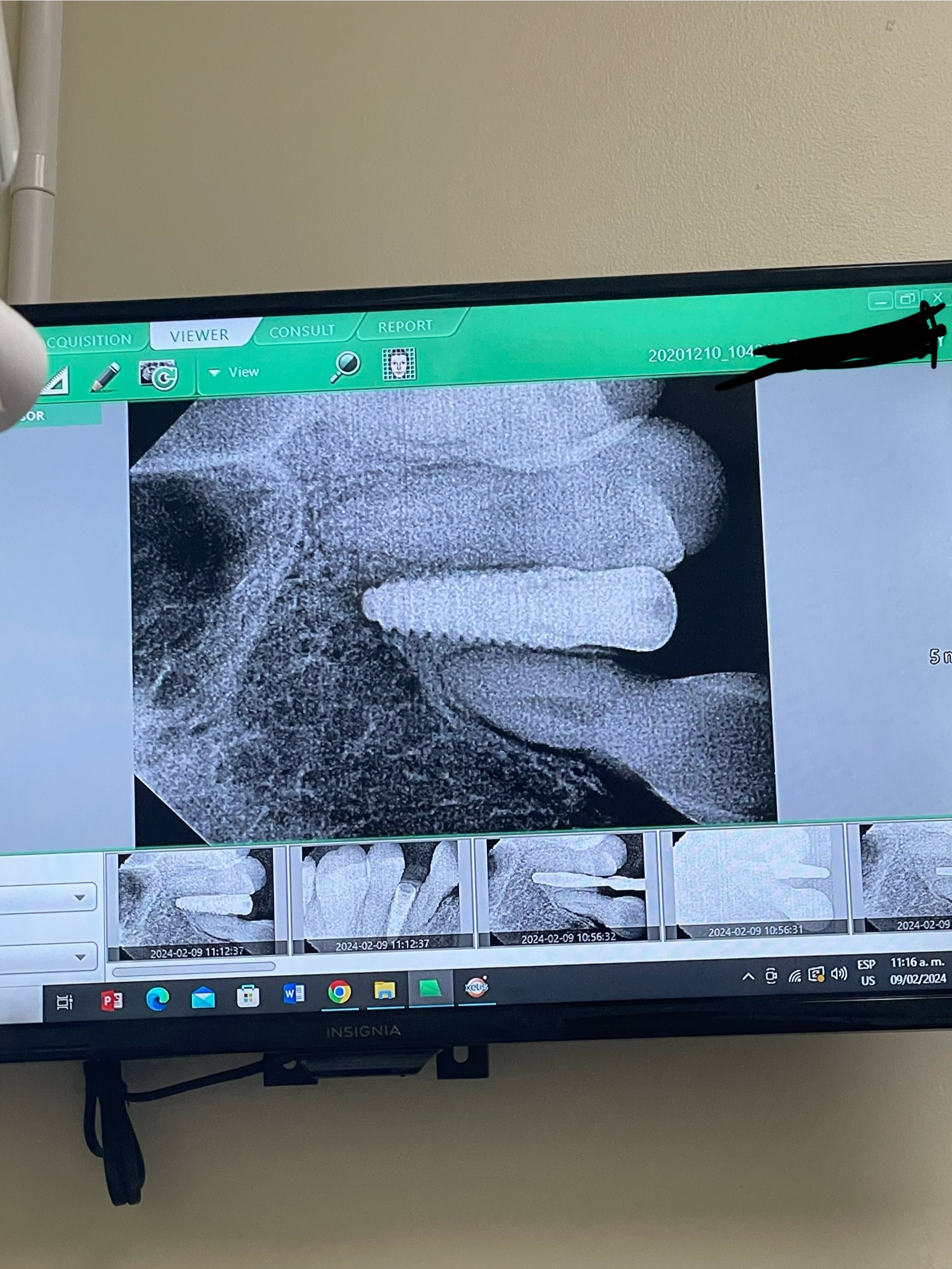Implant Failure from Unknown Causes?
I’d like to start another discussion on implant failures. My question is: Has anyone ever had an implant fail and you cannot determine the cause? Sometimes you do everything right and the implant still fails. I have never heard a speaker discuss this at a CE course. Any views on implant failures from unknown causes?
17 Comments on Implant Failure from Unknown Causes?
New comments are currently closed for this post.
Dr. JL
9/8/2015
Anyone who does implants suffers failure sooner or later. Trying to place a prosthesis on top of healing implants gets you onto the wrong side of the statistical game from the get go. I am not saying that it cannot be done, just choose wisely and do not stress the soft tissue or implant(s). Recently infected bone is not the perfect place to insert an implant. I have seen several posts on this forum extolling the immediate placement of implants into infected sites though. Heavy bruxers with many deep wear facets is a challenge. A long history of periodontal disease is a warning sign as well. I guess what I am getting at is try to eliminate the question marks from your cases. KISS. The topic of failures would make for a great CE course - I would pay to see that one.
Daniel Rittel
9/23/2015
Implants "are for everyone"....
Yet, heavy bruxers exercise very high mastication loads on the implants. The literature quotes 3 or more times, although the numbers (force magnitude) found literature are extremely variable.
Direct consequence: Shortened fatigue life.
There s no free meal: If you apply relatively high repeated loads to a structure, it will end up breaking earlier than expected. This even has a name in engineering mechanics: Palmgren-Miners cumulative damage rule.
Sincerely
Lawrence Singer
9/8/2015
I've had my fair share. I think some of it is faulty manufacturing. For example I went through a few of 3i 6.0 x 10 all placed in different areas of the mouth - all failed. Just this one particular size from one manufacturer. Otherwise my success rate is 98-99 percent, If you are using the wrong manufacturer with a poor surface that can do it to. I had a slew of life cores fail 10 years ago. Parafunctional habits or sleep bruxism from sleep apnea can wreak havoc on implants. And finally vitamin D3 deficiency and Vitamin K2 is epidemic. People who are seemingly healthy can be deficient in these vitamins - a majority of americans are and this can affect bone metabolism. Vitamin D# should be at 80mg/dl not 40 mg/dl.
Alejandro Berg
9/8/2015
Idiopatic Implant Loss ..... mmmmm its a fact of implant life, very unpleasant for the doctor and the patient. We had some of those... you do everything by the book and you expect the patient will too and still....
I guess its a string theory thing, a sum of multiple very small factors that just add to an implant loss.
Its easy to see most of the time why one looses an implant, either overload or faulty occlusion or smoker or diabetic or infection or just right down dirty patients or even biophosphonates....or a sum of the before mentioned, and there is also titanium allergy, bone overheating and reverse embolia due to excesive insertion pressure or torque and just class IV bone that wont respond... Or one just screwed up and sellected the wrong kind of implant for the patient
So you see... string theory... that lets me sleep at night ....
most of the time
cheers
alex
Dennis Flanagan DDS MSc
9/8/2015
I think there is always a cause but we don't know it. It may be that residual bacteria especially from failed endo treatment. No endo therapy is apically sterile. Consequently after extraction, pathogens may reside in the healed trabecular bone, become encapsulated and subsequently colonize an implant. Scrupulous debridement after extraction may eliminate or minimize this. Dennis Flanagan DDS MSc
PeterFairbairn
9/9/2015
We may think there is no reason , but as said there always is , fortunately very few hence why none of us have 100 % success ...... things happen in that 1 % ... generally associated with the site we have placed into ....
Part of the job.
Peter
DR S
9/9/2015
I think this question becomes even more applicable when you place two implants next to each other in the same patient ,same implant type, and 1 fails and 1 intergrates . . . . .you do your best for the patient9tick off your check list of protocols) but these things happen...spoils your day ,but you have to accept ,you cannot have complete control over the end result(as with everything in life)
Don Cohen
9/9/2015
As an Oral & Maxillofacial Surgeon I have had several fail with no apparent reason. I use only top brand implants and the ones I see fail were a few years ago when I was still submerging them, and found failure with NO function. I use textbook technique and carefully select the patient and size of the implant. I have to think the patients' bone physiology must have something to do with this.
As far as those in function, I always check my implants for osseointegration prior to restoration. I remove the healing abutment and place 35 - 40 Ncm of force on them looking for discomfort or movement. Those that have failed are usually in the maxillary 2nd molar region where patients insist on having me place an implant in spite of my advice to not, due to poor bone quality. If they fail after restoration and I have tested them, I can only assume there is a problem with the occlusion. I try to avoid this by having the patient return to me after restoration and check the occlusion myself and if I find I can't pull shim stock in centric and lateral excursions I call the restoring dentist and discuss the need to modify the occlusion.
Alex Zavyalov
9/11/2015
It seems to me that after reading Stuart J. Froum's book "Dental Implant Complications: Etiology, Prevention, and Treatment" (2010 edition) one can see clearly that anything can lead to an implant failure and, it’s not possible to avoid it 100%.
Russell Fitton
9/15/2015
I was just at the ADIS Summit in Atlanta in August and Dr. James Rutkowski was talking about Implant failures. Some of the issues that came up were patients on NSAIDS chronically have problems with bone formation. Also Low Vit. D and High LDL is a bad mix.
MMD
9/16/2015
The case in the associated image is done by me 5 yrs back.This implant was an immediate placement after extr rootpiece 24.Implant failed 1 yr post loading.I attribute failure to two factors in this case1.Immediate placement 2.parafunctional habit .The inclines of the crown were almost 34 to 45 degrees which caused thin buccal cortical plate loss.
Daniel Rittel
9/23/2015
I read with interest all the posts. One has to be specific as to what is meant by failure. I will leave the biological failures to my distinguished colleagues in Dentistry. With my student Dr. K. Shemtov-Yona we have been investigating mechanical failure (fracture) of dental implants. The main (and apparently sole) mechanism is fatigue cracking. Several reasons can be incriminated, such as design, surface treatment. Those problems are ignored by manufacturers and everybody hides behind a very high success rate. Yet, fracture happens, and you probably meet that here and there. Tou can download the relevant papers on technion.ac.il (publications) and are welcome to contact us and we’ll send you the papers. You are welcome to look at http://www.dental-tribune.com/
But still, it is advised to read the 7 papers on the subject to get an idea that is “free of sensationâ€. All the best!
Dennis Flanagan
9/24/2015
One factor that we probably have ignored is the patients with unusual eating habits. I have a patient who had a mid body fracture of #13 implant. She is a daily popcorn eater for decades. Those unpopped kernals may be the culprit causing fatigue and subsequent fracture. Dennis Flanagan DDS MSc
D. Rittel
9/24/2015
Thios probably does no good to implants. But of only those strange habits were causing failure, I guess the percentage of observed fractures would even be much lower than currently reported. Bruxism is another culprit, I suspect, even if a recent survey of 2015 concludes otherwise.
greg steiner
9/28/2015
Implants don't fail only bone fails. Once you realize that the only reason why implants are lost is because the bone failed then you can begin to look for why the bone failed. The most important factor in implant success and failure is the vitality of the bone you are placing the implant in. Today in the US in my opinion the biggest reason for implant loss is the placement of implants in sclerotic bone produced by allografts. Greg Steiner Steiner Biotechnology
Daniel Rittel
9/29/2015
Greg:
"Implants don’t fail only bone fails"
If the word fail is misleading, call it "break". Bone recess will certainly increase the applied moments. But is that all? If you take the time to read the literature on implant fracture, I am sure you will want to moderate your claim. All the best,
Daniel
Daniel Rittel
10/8/2015
Here is a review paper that reviews the state of the art on implant mechanical failure. Comments welcome.
http://www.hindawi.com/journals/bmri/aa/547384/





